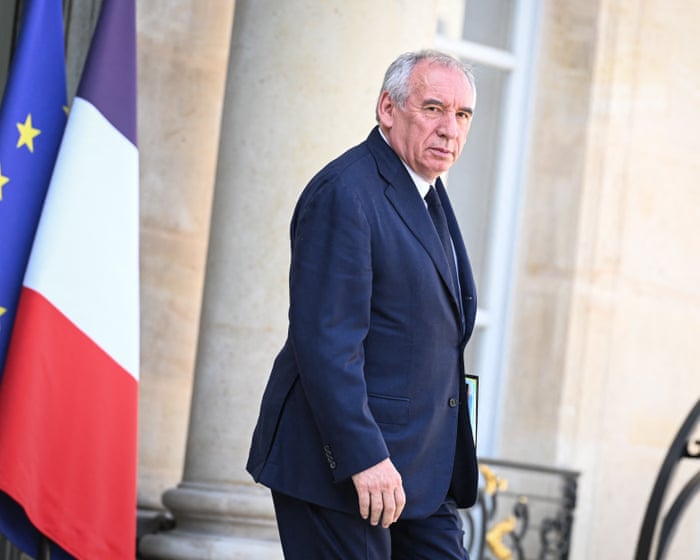France is in economic uncertainty, lacking a budget and possibly soon without a government. Prime Minister François Bayrou has called for a confidence vote in parliament on September 8. With both left-wing and far-right parties pledging to bring down his government, he appears to lack the votes to survive.
On Tuesday, the Socialist Party joined the opposition, aligning with the Greens and the far-right National Rally. To avoid a no-confidence vote, Finance Minister Eric Lombard has publicly warned that seeking help from the International Monetary Fund is “a risk we face.”
Without the Socialists, Bayrou’s center-right government cannot hold on. Economists widely agree that if he falls, it will fuel further doubts about the economy and public finances.
At first glance, France’s situation doesn’t seem critical. It is a key part of the eurozone, its debt relative to the size of its economy is lower than Italy’s, and its borrowing costs are well below the UK’s.
However, while Italy’s debt-to-GDP ratio is higher at 135%, Rome has better control over its spending. Italy’s growth is low, but no worse than France’s, and the EU expects improvement next year, along with low inflation. Italy’s deficit is also set to fall below the EU’s 3% limit by 2026.
In contrast, France is quickly catching up to Italy’s debt levels. Projections show persistent overspending could push France’s debt-to-GDP ratio from 113% last year to over 120% by 2030.
For international investors, the direction of debt matters more than its current size. While France’s borrowing costs are lower than the UK’s at 3.5% for 10-year bonds, they are higher than Italy’s and even Greece’s. Greece, with a debt ratio of 158%, pays just 3.36%.
President Emmanuel Macron has tried to convince the French that major fiscal reforms are needed, without success. He has warned against complacency, saying “the years of abundance are over.” His most unpopular move was raising the retirement age from 62, arguing that pension costs strain public finances and keep skilled workers out of the economy.
Bayrou’s minority government aims to go further, planning €44 billion in savings to cut the deficit from 5.8% to 4.6% of GDP by 2026. One controversial proposal is to eliminate two public holidays.
The only apparent way out is to revise the budget to win over the Socialists, though months of disputes make that unlikely.
Joseph Dickerson of Jefferies noted that despite a drop in French bank stocks, higher debt costs and political instability haven’t yet hurt the financial sector much, at least short-term. He sees the crisis as more of a threat to growth than to government solvency.
Goldman Sachs analysts expect Bayrou to soften his deficit reduction demands to save his government. However, a larger deficit would raise the debt ratio and put credit ratings at risk. On the other hand, a slower deficit cut could boost growth by reducing fiscal drag, though tighter financial conditions and rising borrowing costs would pose challenges.An increase in policy uncertainty would likely harm economic growth. Overall, we expect growth to remain at 0.6% in 2025 and 0.9% in 2026.
These figures will be discouraging for Macron, who had promised to build a more dynamic, high-growth economy.
With French polls indicating that there are few plans capable of uniting a majority of the public, a budget agreement may not be reached anytime soon.
Frequently Asked Questions
Of course Here is a list of FAQs about the economic and political crisis in France designed to be clear and accessible
BeginnerLevel Questions
1 What is this France on the edge crisis about
It started as a dispute over a new pension reform law that raised the retirement age from 62 to 64 This economic policy sparked massive public anger leading to widespread protests and strikes that escalated into a broader political crisis for President Macrons government
2 Why did the government want to raise the retirement age
The government argued it was necessary for economic reasons As people live longer and the population ages the pension system was heading toward a large financial deficit Raising the retirement age was presented as the fairest way to keep the system funded without raising taxes or cutting pension benefits
3 Why are people so angry about it
Many French citizens see the right to retire at 62 as a hardwon social benefit They feel the reform is unfair especially to people who start working young or have physically demanding jobs Theres also anger at the government for using a special constitutional power to pass the law without a full parliamentary vote which was seen as undemocratic
4 What kind of protests are happening
The protests have included nationwide strikes massive marches in cities and in some cases more violent demonstrations with clashes between police and protesters
IntermediateLevel Questions
5 What is Article 493 that everyone is talking about
Article 493 is a clause in the French constitution that allows the government to pass a law without a vote in the National Assembly The government used it to force the pension reform through betting that its opponents wouldnt muster enough votes to bring the government down in a subsequent vote of no confidence
6 Did the government almost fall over this
Yes it came very close After using Article 493 opposition parties called for a vote of no confidence The government survived by just 9 votes This razorthin margin showed how deeply divided the country and its parliament are
7 Has this affected President Macrons popularity
Yes significantly His approval ratings dropped to near record lows following the reform The crisis has weakened his political capital and made it much harder for him to pass any further legislation during his second



